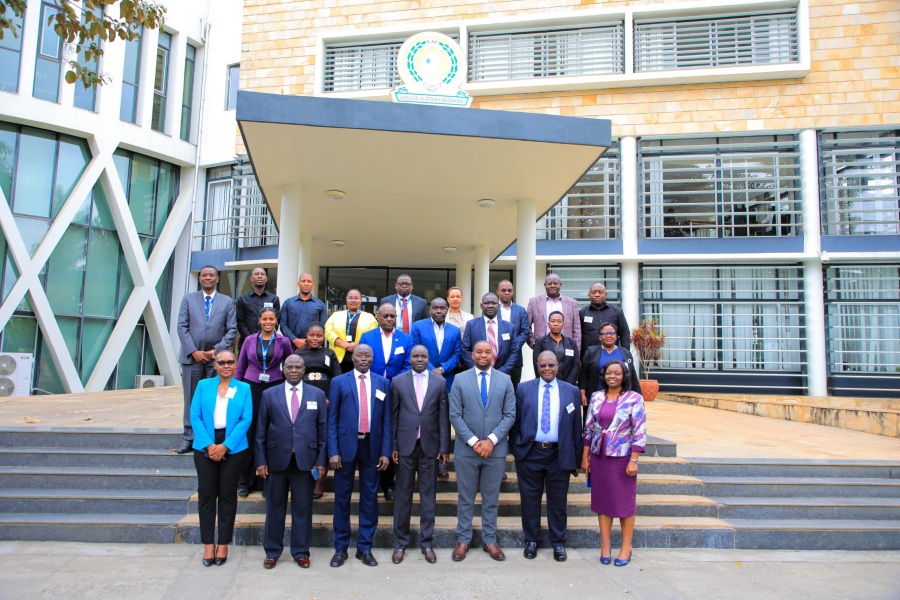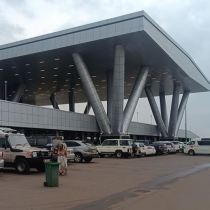
EAC Boss Calls for Swift Signing of Air Transport Regulations
The East African Community (EAC) Deputy Secretary General in charge of Infrastructure, Productive, Social and Political Sectors, Andrea Aguer Ariik, has urged EAC Partner States to quickly sign the EAC Air Transport Market (Liberalisation) Regulations to boost regional integration and drive economic growth.
Ariik’s call follows the completion of the regulations designed to liberalise the air transport market across the EAC region. These regulations will be presented to the 19th Meeting of the EAC Sectoral Council on Transport, Communication, and Meteorology (SC-TCM) for approval.
Speaking at the 19th Meeting of Directors General of Civil Aviation and Airports Authorities at the EAC headquarters in Arusha, Tanzania, Ariik emphasized that the adoption, signing, and ratification of these regulations by Partner States will fully liberalise the region's air transport market. “Once this market is liberalised, Partner States can negotiate their Regional Air Transport Bilateral arrangements under the Multilateral Air Services Agreement,” he noted.
Liberalisation is expected to reduce airfares, boost demand for air travel, improve connectivity, and enhance operational efficiency. This, in turn, would decrease flying times and support the expansion of air transport capacities and regional economies.
Ariik highlighted that liberalising air transport would not only simplify the movement of people and goods but also enhance tourism and trade among EAC member states. “An integrated air transport market is essential for the development of our region. By removing barriers to air travel, we can enhance competitiveness and attract investment in the region,” he stated.
The Deputy Secretary General encouraged discussions on harmonising regulatory fees and charges in line with the EAC Common Market Protocol. He proposed designating the EAC Air Transport Market as domestic for EAC-registered air operators within EAC territories, applying domestic charges to lower passenger tariffs.
“The cost of airfares in the region has caused a public outcry that needs to be addressed,” Ariik added, urging the Directors General of Civil Aviation Authorities to implement agreed-upon programmes and projects, including ratifying model regulations for the integration of the Civil Aviation and Air Transport industry within the EAC.
On reducing regional airfares, Ariik revealed that the EAC Secretariat, in collaboration with Partner States, has developed strategies and possible mechanisms to make air travel more affordable. This includes forming national consultative committees to guide the national consultation process, as directed by the 17th TCM.
Ariik acknowledged that Burundi and Rwanda have submitted reports following their national consultations, and he urged other Partner States to follow suit. He stressed the importance of creating conducive environments for airlines to operate and expand their services across the region.
“We cannot afford to lag behind in an era where the aviation industry is rapidly evolving,” Ariik said, reaffirming the Secretariat's commitment to supporting Partner States in achieving a liberalised and integrated air transport market.
The ongoing 19th Meeting of the Heads of Civil Aviation and Airports Authorities follows the directives and recommendations from the 18th meeting held in January 2023 in Arusha, focusing on implementing Civil Aviation programmes from February 2023 to June 2024.
Links
- 26 views












































Join the conversation